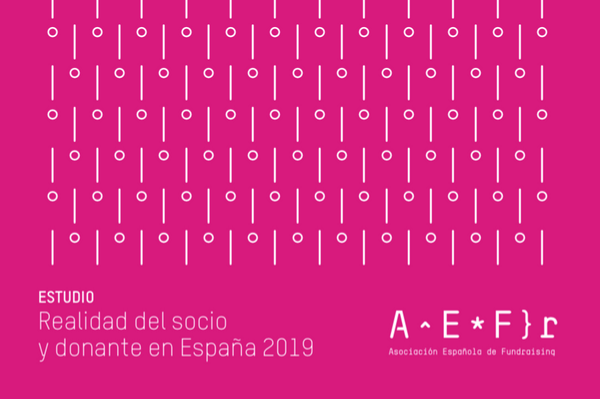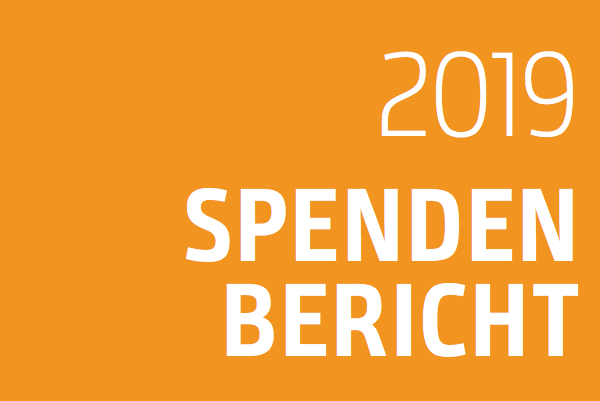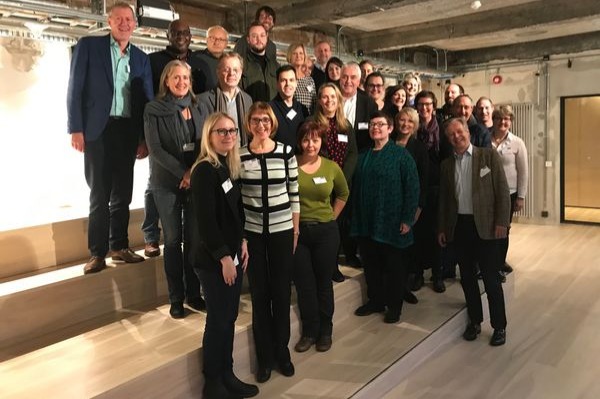
Face-to-face & telemarketing most effective recruitment channels for Spanish donors
December 4, 2019
Austrian donors to give all-time high in 2019, report shows
December 4, 2019If the sector is to be judged on its achievements rather than cost, non-profits need to offer more comprehensive and consistent impact measures, said speakers at this year’s EFA Skillshare.
With the public demanding greater transparency around how charities work, delegates agreed that there is increasing pressure for organisations to demonstrate impact, particularly among younger supporters who want to understand where and how their money is being spent.
At the event in Oslo last month, Anders Magnus Løken, director of Risk Advisory at Deloitte Norway, said: “More often than not, non-profits are measured on administration costs, rather than what they should be measured on; what they have achieved.”
Siri Nodland, secretary general of the Norwegian Fundraising Association (Norges Innsamlingsråd) added: “But we can’t complain about how people assess us if we don’t offer a better solution.”
She explained that, in response to the public’s demand for greater transparency, the Norwegian Control Committee for Fundraising (Innsamlingskontrollen) publishes an annual list of the NGOs with the lowest administration costs. This does not communicate what the organisation achieves and, because every organisation reports their own project and administrative costs in a different way, the list doesn’t enable meaningful comparison. And yet, this is the most tangible measure that the public can access to make decisions over which non-profits to support.
The challenge, Løken added, is that there is no clear ‘currency’ for impact that covers the full spectrum of charitable causes: “If we all used a common language on impact, it would be far easier to shift our focus onto the results.”
Impact measurement for the right reasons
With relatively few meaningful comparison measures available to help them identify which charities to support, philanthropists are increasingly consulting the financial and investment community for advice on where to invest to achieve most impact.
And yet, Løken highlighted that impact measurement shouldn’t simply be led by the needs of philanthropists and potential funders. “Tracking the impact of charities’ work informs future strategy,” he said. “It enables the organisation to make more informed choices and, ultimately, to increase future impact.”
“Member charities of Giva Sverige are required to issue an impact report annually,” said secretary general Charlotte Rydh. “This isn’t just about giving the public what they want. It’s important to really understand impact. You shouldn’t be doing it for someone else. You have to do it for the right reasons, to achieve change, not just to demonstrate it.”
Certainly, non-profits have increased their focus and investment in impact monitoring in recent years, now using a range of measures and methodologies. This includes EVPA’s impact management principles and the United Nations Sustainable Development Goals.
Doug Balfour, senior advisor at Geneva Global, highlighted that the demand for impact is unlikely to diminish. “The requirement for more robust social impact measurement will continue to grow and get more discerning.”
He explained that the sector needs to offer more opportunities for co-creation, drawing donors and funders into the design process for charitable services. “Donors are pushing for more co-creation between donors and grantees. Donor collectives, systems change programmes and philanthropic funds all exist because donors want to see more social impact for their money.”
See more in Doug’s blog here.

Drive for Life
Case study: Drive for Life
Skillshare speaker and Drive for Life founder, Knut Ove Børseth explained that measuring impact is so important to the social enterprise that it now sits at the heart of the programme’s service delivery.
Drive for Life first came about when Børseth returned from winning a European rally car championship to a local fan base of children and teenagers. Noticing that many of these children craved a sense of belonging, were at risk of dropping out of school and of becoming isolated from society, he gave them a cap and found them jobs to do in his garage. This grew into a structured adrenaline-filled sports programme, offering a safe space for vulnerable children to build friendships and communities.
Børseth said:
“We knew we were doing something right and we could see that we were making a difference, but we didn’t know how we could scale it up and encourage people to invest in the programme. For this to happen, we needed people to understand the impact of our work.
“But we didn’t know how to measure our work. After all, how do you measure happiness or loneliness? How do you measure the impact not just on beneficiaries, but on neighbours and communities?”
Drive for Life has since researched and established a socio-economic model and solid routines for impact reporting that looks not only at what the programme achieves, but what would have happened if its services were not provided. The analysis explores the impact on the individuals within the programme, their communities, contribution to achieving SDGs and the social return on investment.
Continuous monitoring of its social impact is recognised as a priority for everyone within the organisation, helping to ensure they can continue to track progress and report back to supporters and investors.
Nine years later, the programme has spread through 58 municipalities in Norway and launched in Sweden. More than 2,000 youths have participated, with 9 in 10 of those staying on at least an extra year in school. Drive for Life reports that the programme contributes more than 1.5 billion NOK in socio-economic benefit, with local authorities getting NOK 7 back for every krone invested.




